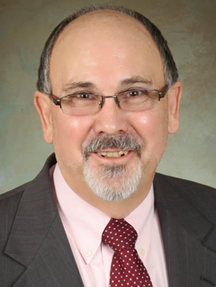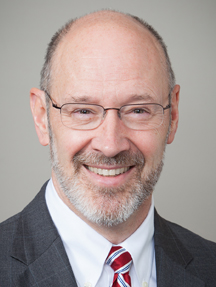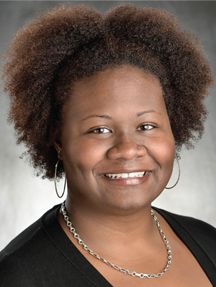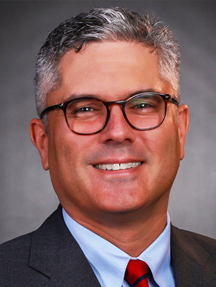From Infections to Anxiety:
How Pediatricians Face the Challenges of Caring for Today’s Kids
By Kasey Fuqua
Over the last 40 years, pediatrics has been shaped by rapid changes in the world. From the development of vaccines to the advent of the Internet, pediatricians have been changing their practices to fit the needs of new generations of children.
The Vaccine Effect
A major shift in pediatric care began in the 1970s and 80s as more vaccines were developed to prevent life-threatening infections in children.

Douglas Gregory, MD, FAAP, pediatrician with Bayview Physician Group, has provided pediatric care for 43 years. He recalls seeing many children with severe infections such as meningitis as a young pediatrician.
“We had any number of children coming in with severe sepsis and bacterial meningitis,” says Dr. Gregory. “Particularly with meningitis, there was a high mortality rate and considerable morbidity with hearing loss and vision loss. Seeing children and families so devastated by these illnesses and then seeing those infections wiped out by vaccines really stands out in my mind.”
Vaccines continue to affect pediatric care, changing treatment guidelines and the day-to-day work of pediatricians. Instead of focusing on preventing or treating acute infections, pediatricians can spend more time on well-child care.
 “While we did routine well-child visits, the major emphasis of care was keeping the kids healthy from infectious diseases,” says Douglas Mitchell, MD, pediatrician at CHKD and medical director of CHKD Medical Group. “We thought about it on a daily basis. With the advent of vaccines, it’s just not the majority of the practice anymore.”
“While we did routine well-child visits, the major emphasis of care was keeping the kids healthy from infectious diseases,” says Douglas Mitchell, MD, pediatrician at CHKD and medical director of CHKD Medical Group. “We thought about it on a daily basis. With the advent of vaccines, it’s just not the majority of the practice anymore.”
“With the development of vaccines, better antibiotics and better public health knowledge, the emphasis has been switched to preventive health care,” agrees Dr. Gregory.
A Stronger Focus on Preventive Health
While pediatricians have always provided preventive health care, there is a much greater emphasis on well-child care in today’s world. The Affordable Care Act ensured that all well-child appointments must be covered by insurance, helping families seek out preventive care.

“Now insurance companies are recommending that you come in for your well-visit,” says LaTonya Russell, MD, MPH, FAAP, pediatrician at Sentara Family Medicine & Pediatrics in Chesapeake. “We have done this paradigm shift from illness care to caring about the whole kiddo, which includes caring for the parents. Our ultimate goal is to do whatever we can to make sure the patient is healthy, which can mean caring for the whole family.”
The scope of a pediatrician’s practice has also changed. In the 1970s, pediatricians typically saw children until the age of 12 or into the early teens. Now many general pediatricians see young people from birth to age 21, allowing greater continuity of care as children and teens finish their growth and development. Pediatricians are also less likely to spend time in the hospital, leaving that to the purview of pediatric hospitalists and spending more time in the outpatient office.
“We are looking more at the development of the whole individual,” says Dr. Gregory. “Society has changed so that we can move into this area of preventive health care and deal with these issues, like obesity, tobacco use or vaping.”

The Growing Need for Children’s Mental Health Care
As the focus on preventive health grows, so does the focus on development and mental health care. From early screenings for developmental disorders or autism to screening for anxiety and depression, pediatricians are spending more time caring for a child’s growing mind.
One major driver of the focus on mental health care is suicide rates, which have been on the rise since 2007, particularly among girls. Suicide is the second leading cause of death for people ages 15-24.
“That’s alarming,” says Dr. Russell. “In general, our pediatrics population is reflecting larger society with the amount of anxiety and depression that we are seeing. We are spending more time on preventive mental health care because we have to.”
Dr. Russell says about 75 percent of children in the United States lack access to critical mental health care. General pediatricians need to step in to fill in the gaps in care.
“We are starting to see more pediatricians stepping outside of their comfort zone so we can provide mental health care,” says Dr. Russell. “As long as I can remember, pediatricians have kicked parents out of the room to have the sex, drugs, and rock-n-roll talk with teens. Now we have to be more specific and thorough in what we ask during that time.”
Many pediatricians are seeking out additional training and education in psychiatric care to better meet their patients’ needs.
“When I finished residency 32 years ago, we didn’t have a lot of training in dealing with behavioral and psychiatric issues,” says Dr. Mitchell. “The increase in mental health conditions has required a change in us older pediatricians to better prepare ourselves for what’s changed. Many of us have taken additional training and coursework to step up our game and increase our level of comfort with managing those conditions.”
Children’s Hospital of The King’s Daughters is also striving to meet the demand for pediatric mental health care with the development of its 60-bed inpatient facility and additional intensive outpatient programs. The health system has hired dozens of licensed clinical social workers as well as pediatric psychiatrists over the last few years.
Pediatricians agree that children today are facing more issues than in the past as society grows more complex.
“People are living paycheck to paycheck,” says Joseph Baust, MD, pediatrician with Tidewater Physician Multispecialty Group. “There are a lot of family stressors. It’s harder for people to get good insurance. It’s hard earning a living. I think parents as a whole are more nervous and anxious than in the past. Kids growing up in those households feel those anxieties.”
Dr. Baust says other factors may be contributing to increasing depression and anxiety in children, including lack of exercise and time spent outdoors. Technology, like social media and video games, may also be affecting children’s mental health.
The Changing Role of Technology in Kids’ Health
Technology is affecting almost every aspect of health care — for the good and the bad. The American Academy of Pediatrics warns that too much screen time can slow development in young children and affect social interaction in children of all ages. Technology can also harm quality of sleep and learning.
Dr. Baust feels social media has contributed to both higher obesity rates and anxiety, particularly among teenagers.
Social media has negatively affected parents, too, helping give rise to the anti-vaccination movement and other fears about their children’s health.
“We’re living in a strange time where you can go to social media and somebody from five states away says something and you believe it,” says Dr. Baust. “And then you don’t vaccinate your children. In our practice, we don’t accept anyone who doesn’t vaccinate. It’s a shame it’s come to that, but I have to protect the newborns.”
Dr. Mitchell agrees that misinformation online has led to additional challenges in primary care and pediatrics.
“When they are getting bad information online, you have to reeducate parents,” says Dr. Mitchell. “Vaccines have been a victim of their own success because we’ve done a great job with vaccines, so many parents have never seen these infections before.”
Still, Dr. Mitchell says technology has helped parents become more informed about their children’s health and care needs.
“Certainly information and digital access has changed things,” says Dr. Mitchell. “Our parents are more informed and can ask very good questions, which is a positive for patients.”
Over the next 40 years, technology is likely to be a leading driver of change and challenges for pediatricians. But pediatricians will adapt, always focused on their main purpose.
“In pediatrics, we are all about prevention and always have been,” says Dr. Mitchell. “We want to do everything we can to give kids the best life they can have, by preventing complications with physical or mental health. That’s never going to change.”

